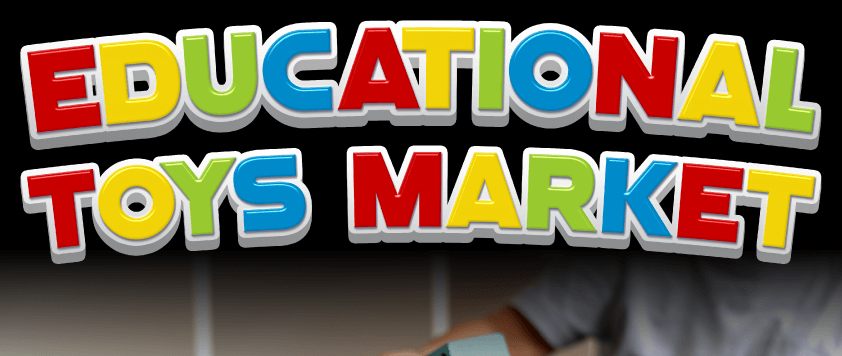
Educational toys refer to the objects of play intended to stimulate children’s learning experiences. Safety and durability are the key points of concern for all toy manufacturers globally. These toys develop various skills among children from different age groups. The skill development aspect of the toys should be appropriate and suitable to the specified age group. the educational toys industry was valued at USD 64.91 billion in 2020 and is anticipated to grow from USD 68.81 billion in 2021 to USD 132.62 billion by 2028 at a CAGR of 9.83% during the forecast period.
Technology is Leading the Educational Toys Industry
Internet-connected educational toys, including high-tech revolutions, are progressively prevalent among an escalating population of tech-savvy customers. A smart toy works through onboard electronics & embedded sensors and has intelligence. Regardless of their high costs, smart toys are chosen over other learning toys for their ease of use and personalized instructive approach.
The growing adoption of these smart toys is probable to generate a healthy demand for Science, Technology, Engineering, and Math (STEM) toys worldwide during the forecast period. STEM toys are intended to improve children’s creativity and problem-solving skills engagingly and interestingly. With an increasing number of parents focusing on making their children future-ready by purchasing smart toys, STEM toys are likely to witness significant growth over the forecast period.
COVID-19 Pandemic Restricted Children’s Development
COVID-19 has affected the supply of learning-oriented toys through online/physical channels and toy sales. This factor is attributable to high spending on innovative learning toys by parents for children amid the closure of schools. With children spending more time at home due to lockdown rules, the COVID-19 pandemic has bolstered the demand for these toys. Nevertheless, the pandemic triggered significant supply chain disruptions across countries. Since China is a prominent supplier of learning & education toys globally, various lockdown restrictions and increased import duty on Chinese toys in countries, such as India, hindered trade operations.
Top Companies Listed by Fortune Business Insights™:
Mattel Inc
Mattel Inc is listed as one of the most prominent players in the industry. The company was established in 1945 in Hawthorne, California, the U.S., by Elliot Chandler and Harold Matson. The company provides a wide range of educational toys incorporated with the latest technologies according to the age groups. Also, motor skill development and intellectual development toys are classified to ensure effective results for parents.
-
Lego Systems
Lego Systems is considered one of the leading industries in the educational toys sector. The company was established in 1932 and is headquartered in Billund, Denmark. Ole Kirk Kristiansen is the founder of Lego Systems. Toy bricks with various colors and shapes are developed to excite the children and boost their enthusiasm to form various objects, as depicted in the manual. The company innovatively designs toys to keep children engaged.
Melissa & Doug
Melissa & Doug is a brand introduced by an enthusiast couple having six children. The company is known as one of the best manufacturers of educational toys headquartered in Connecticut, U.S. A diverse product portfolio and various sets of toys designed for kids from different age groups from 0-12 months up to 8 years and above allow the company to maintain its market position.
TOMY
TOMY is one of the prominent players having its business reach globally. The company is headquartered in Japan, with the availability of its toys worldwide. It provides toys from different categories according to age groups. It includes soft toys, educational books, activity toys, and early learning toys.
Incorporating Tech-savvy & Environment-Friendly Toys for Intellectual Development
The increasing demand for environment-friendly education & learning toys is anticipated to inspire new players’ entry into the industry during the projected period. Disposability has historically been a major concern in the educational toys industry, with buyers typically not tempted by second-hand and outdated toys. This factor is surging the demand for education toys and green learning. Several innovative manufacturers are developing toys using green materials such as bamboo, sugarcane, and cardboard.